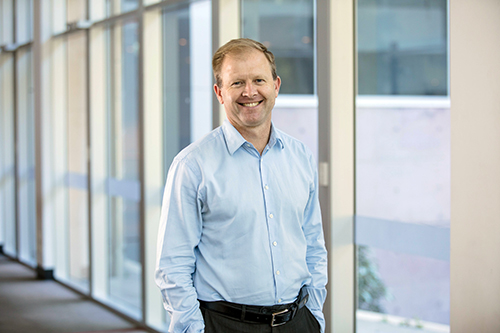Director's Welcome November 2021
 Following the COP26 Conference in Glasgow much has been discussed about transitioning to a low carbon future. The task is enormous, and for the mining industry it presents opportunities and challenges.
Following the COP26 Conference in Glasgow much has been discussed about transitioning to a low carbon future. The task is enormous, and for the mining industry it presents opportunities and challenges.
Not least of these is the impact on communities, and in a recent article in The Conversation, Professor Deanna Kemp and Associate Professor Nick Bainton reminded us of the need to uphold human rights, gender equality and the rights of workers everywhere.
This principle is reflected in the new Community-Smart Consultation & Consent Project supported by the BHP Foundation, and I am delighted to announce that CSRM is one of four organisations selected to partner on the project that aims to improve, and ‘close the gap’, on effective governance of natural resources.
CSRM also recently hosted an online Indigenous Exchange Forum that sought to provide an independent and culturally safe platform to facilitate knowledge exchange, networking, and connection between First Nations peoples whose customary lands have been impacted by mining. Over 40 First Nations representatives from Australia, Canada and Aotearoa (NZ) participated in the two-day Forum, and I am hopeful this will be the start of many valuable conversations.
This same push to find sustainable solutions is evident across the Institute and I recently joined Director of SMI Production Centres Professor Rick Valenta and Queensland Resources Minister Scott Stewart to announce a three-way agreement between the State Government, Japan Oil, Gas and Metals National Corporation (JOGMEC) and UQ to examine whether cobalt can be retrieved economically from old copper mine tailings.
Our work on eco-engineering the mineral and organic constituents of red mud into useable soil is entering full-scale trials at alumina refineries in Queensland, and you will also read in this e-newsletter of investigations underway to determine whether ore-sand (o-sand), an alternative construction material produced from mineral ores, could become a sustainable source of sand while significantly reducing the volume of waste produced by mining.
Here at SMI, we are currently looking at our training and short course offerings and have been undertaking some market research to inform our strategy and ensure we are delivering the professional development needed by industry. We will be sending an invitation to complete an online survey in the next week, and we'd love to hear your thoughts.
As the year draws to a close I’d like to thank our industry and academic partners – by working together I believe we can effect impactful change for the future.
If you’d like to learn more about some of our work, we are hosting the 2021 Complex Orebodies Presentation Day on 2 December where projects underway as part of that strategic research program will be showcased.
Year end is traditionally UQ Giving Day and this year we were delighted to launch the Dan Alexander Memorial Fund raising $150,000 for postgraduate education. I’d like to thank everyone who contributed, your donations will make a very real difference to a student’s life. We were also honoured to establish an award in honour of the late Professor Bill Whiten. Bill’s widow, Agnes Whiten, has set up the award to give HDR students in process control and model development at UQ financial support to complete their thesis or the opportunity to attend a conference.
In September, the SMI family received very sad news with the passing of Alban Lynch. Alban was a legend in mining research and innovation. He was the driving force behind the JKMRC and mentor to many - he will be greatly missed. I’d like to thank Don McKee for allowing us to share his eulogy with you – it is a beautiful tribute.
It has been a big year and I am looking forward to taking some time off over the festive season. My final word is to wish you and your families well for the holidays and the new year.

.
